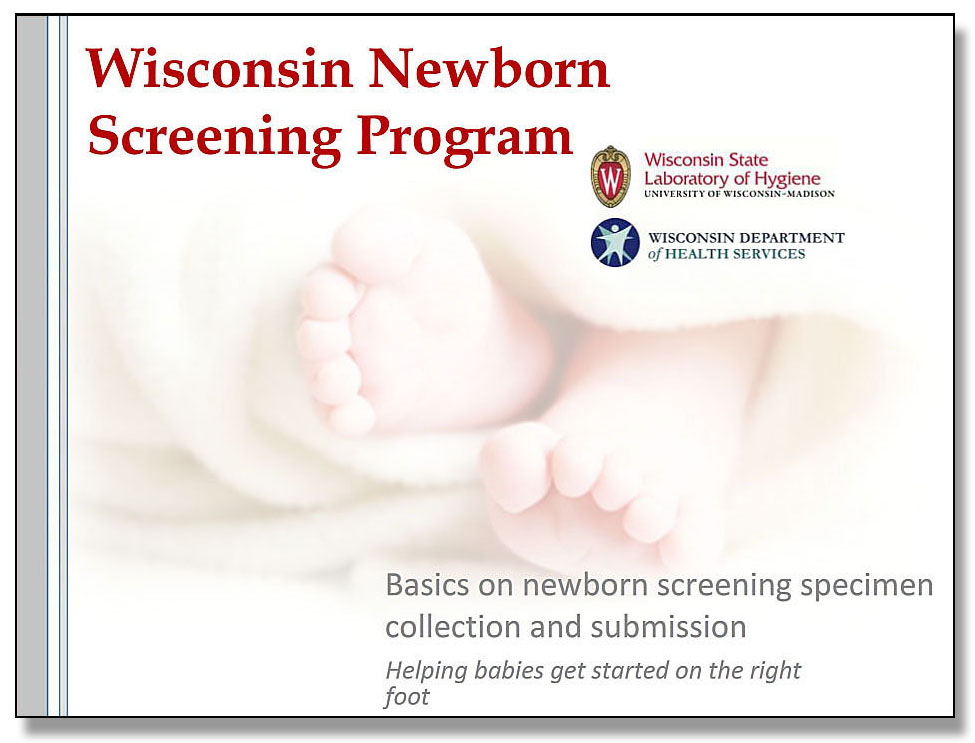Continuing Education
The Wisconsin Newborn Screening Program has produced three interactive training webinars on collection and submission of newborn screening specimens.
The intended audience for all webinars includes nurses, midwives, phlebotomists, physicians and all health care workers who participate in the newborn screening process. These webinars can be used to train new health care workers as well as refresh the skill set of those currently performing newborn specimen collections.
 |
Webinar #1: Basics on Newborn Screening Specimen Collection and Submission UPDATE IN PROCESS – This training webinar provides guidance on proper newborn screening specimen collection and submission.
|
|
Webinar #2 Blood Collection for Babies in Special Care Units This training webinar provides guidance on proper newborn screening specimen collection and submission for babies in special care units. |
|
|
|
|
Webinar #3 How to Complete the Newborn Screening Card This training webinar provides instruction on how to fill out the Screening Card. |
|